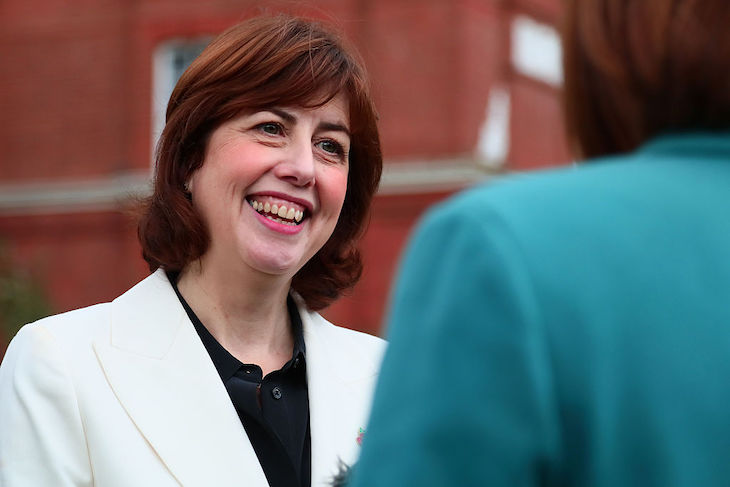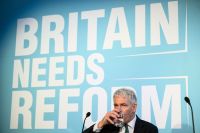Has a generation ever been so minutely poured over as today’s young people? From Jonathan Haidt’s The Anxious Generation, his bestselling social science book detailing the impact of social media on children, to Netflix’s Adolescence, the terrifying drama depicting the impact of the manosphere on teenage boys, youngsters are under the microscope. A Channel 4 poll earlier this year declared that young people backed the idea of a dictatorship to bring order to the universe. We are assailed by constant noise about the apparently doomed state of today’s teenagers and twenty-somethings. But is it all merited?
Adding to the analysis, we have just finished a major new study of the 16-29 year old age group and it offers a more nuanced picture. It’s true to say that financial insecurity is a cause of daily anxiety for today’s twenty-somethings. It’s also true they’re worried about the future of democracy and have little love for our established political parties. As for social media, more than two thirds told us they back an outright ban for under 16s; young people are clearly worried about its impact on their younger brothers and sisters.
Yet this is also a generation that sees life half-full. For while there are massive differences of opinions among 16-29 year olds, this is still a generation that continues to hope. A measured perspective is necessary when analysing today’s young people; indeed, perhaps they’re not that much different to the rest of us. After more than 200 interviews, and a 2,000-person poll, here is what we found:
1 Bread and butter is back
Young people in Britain are refocusing on basic economic and material needs as their top priorities. Polling shows that fundamental ‘quality-of-life’ issues dominate their concerns, whereas cultural and global matters lag behind. This emphasis on jobs, living costs, homes, and public services reflects a return to basics in the political agenda. The survey finds that easing financial pressure is seen as key to improving youth well-being: the most popular answer for what would make young people happier was ‘higher wages/financial stability’ (41 per cent). In short, everyday economic security has eclipsed abstract culture-war debates – a shift mirrored in elections worldwide, as voters reward those who deliver on bread-and-butter issues.
2. The optimism paradox
Despite facing steep barriers, Britain’s young people exhibit a resilient optimism about their future – a hopeful outlook that persists in spite of the very real challenges they acknowledge. Nearly two-thirds (63 per cent) say they feel optimistic about their personal future, versus only 20 per cent who feel pessimistic. This striking confidence coexists with their awareness of adversity. In effect, society at large may lament the tough hand dealt to Gen Z (those born between 1997 to 2012), but young people themselves largely believe in their ability to adapt and thrive. The data paints a picture of a generation that refuses to succumb to despair – they recognise the obstacles before them, yet remain optimistic that with hard work and resilience they can prevail.
3. The politically heterodox youth
The poll reveals that only a minority of young people firmly embrace a left-right ideological identity. Most young people occupy more fluid or moderate positions, mixing ideas that would traditionally be labelled left and right.
At the same time, it would be a mistake to characterise this generation as uniformly progressive. There is growing momentum among the youthful right: 26 per cent of young men, for instance, report feeling warm toward the upstart right-wing Reform UK party (compared to 15 per cent of young women). Far from being apathetic, young Britons are civically active across the spectrum. These patterns challenge any simple characterisation of ‘Gen Z’ as disengaged or uniformly liberal. Instead, today’s young citizens are a politically heterodox group – largely independent-minded, unexpectedly energised on the conservative flank, and more willing to participate in civic life than society often assumes.
4. Moving beyond generational analysis
The old narrative of a monolithic ‘generation war’ – pitting all young people against all older people – is becoming obsolete. This study shows that differences within the youth generation, by class, education, gender, ethnicity, and region, are often more pronounced than the differences between generations.
Young Britons are not a homogeneous bloc. Their attitudes and opportunities diverge significantly based on who they are and the life circumstances they face. One stark example is the divide by socioeconomic status. Young people with higher education or secure jobs are far more optimistic and engaged than those struggling on the margins. These intra-generational rifts in optimism and engagement underscore that ‘young people’ are not all experiencing the world in the same way. Growing up in the UK today is highly unequal depending on one’s region, gender, education and identity. Any analysis that treats an entire generation as a single unit risks missing the more consequential cleavages within that generation.
5. The gender gap in British politics
Among the clearest internal divides within the younger generation is the gender gap. Young women and young men in Britain display notably different political attitudes, party preferences, and modes of engagement. The gender divide extends to how young people participate in politics and which issues they prioritise.
Men and women also differ on policy concerns. Young women put a stronger emphasis on social welfare and well-being issues: 45 per cent of women under 30 cited healthcare as a top national issue (versus 30 per cent of young men). Young men, by contrast, are somewhat more preoccupied with issues like crime and immigration than their female peers. These contrasts show a tangible gender gap in British youth politics – from partisan leanings and value orientations to the very ways that young citizens engage in public life.
6. Disillusionment with traditional parties
To suggest that young people have turned their backs on democracy is not correct: when asked whether they preferred dictatorship over democracy, the answer was 57 per cent to 27 per cent against. But the youngest voters in Britain are increasingly turning away from the established political parties and looking to alternatives, a trend reflected in many European democracies.
The poll results put Britain’s mainstream parties on notice: if an election were held tomorrow, the Labour Party would still attract the largest share of young voters (about 30 per cent), but two non-traditional parties – the Green Party and Reform UK – would collectively draw an equal share, with roughly 15 per cent of youth voting for each.
In contrast, the once-dominant Conservatives would secure a mere 9 per cent of the youth vote. Britain’s under-30 voters are exploring political options beyond the two-party establishment, whether Green progressivism or populist right alternatives. It is a phenomenon mirrored across Europe, where youth cohorts have similarly fuelled the rise of Green parties and anti-establishment movements.
The message from Britain’s youth is clear: the standard bearers of Conservative and Labour can no longer take the youngest generation’s support for granted. A new political landscape is emerging, shaped by young voters in search of alternatives.
What does this all mean for our attitudes to Gen Z and for Britain’s democratic future? In its analysis of the findings, the John Smith Centre, a non-partisan organisation based at the University of Glasgow which seeks to inspire more young people to get involved in politics and public life, set out three take-aways.
Firstly, the poll shows the need to retain some calm perspective about Britain’s young people. Since the dawn of civilisation, young people have always been going to the dogs. And likewise today.
We must resist allowing our anxieties about Gen Z to feed a doom-loop narrative
Many young people are struggling financially and with their mental health. But what is striking about our poll is that, despite having been dealt an objectively difficult economic hand, despite the fact affordable housing has never been more out of reach, despite stagnant wage growth, despite the effects of social media, many still feel hope and optimism about their future.
Our conclusion? UK society must resist allowing its own anxieties about Gen Z to feed a doom-loop narrative which, if young people come to believe in it themselves, will end up being self-fulfilling. In short, stop catastrophising Gen Z.
The second takeaway is directed at our political leaders. Our poll suggests that if politicians want to boost trust in democracy and even encourage young people to get involved themselves, there needs to be a marked shift in the way politics is practiced, with clear evidence of practical delivery. There is self-interest in this too: the fact that young people are open to non-traditional parties means that they need to respond if they are to retain a pipeline of potential support.
Sceptical young people want to see more openness, greater transparency, less aimless division, and more young role models in positions of power. And just as they are looking for the footholds in their own lives to deliver some security and identity, so too do they want their politics to be focused on the tangible and practical delivery of basic needs: higher wages, better jobs, affordable housing, safer communities, a sustainable health service.
Faith in democracy relies not on defending its principles – which are largely supported by young people – but on hard evidence it is delivering in young people’s interests. In short, want to build trust in politics? Build more houses.
The final message from the John Smith Centre is for us all. The poll shows that Gen Z contains multitudes. It shows that growing up today is an unequal business. And there is a clear correlation between those young people who are out of work, on low incomes, and don’t have a university degree and a sense of detachment and disengagement with the country.
The consequences of that are obvious. Thanks to today’s always-on world, those young people who feel left behind and left out of society have never been more aware of the fact. So if mainstream politics fails to respond to their needs, we shouldn’t be surprised if they check out of society and our democratic norms.
Democracy is not being ditched by Britain’s young people – but, among many, it is on notice. That’s a warning that our political system would do well to heed.







Comments